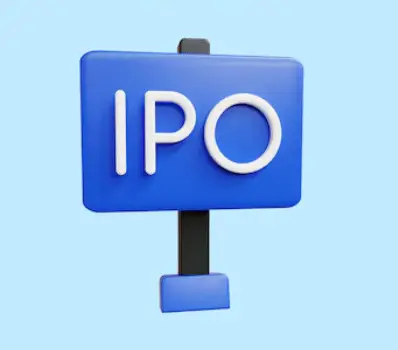Let’s understand What is an IPO? For any company, an IPO or Initial Public Offering is a big event as it denotes the first time that its shares will be sold to public. An IPO is when a private company is transformed to public, so it’s talking about an important shift. What are IPOs and this blog post will get you explore inside out about it, its goal, process in brief what all aspects needed to be covered on high level of these financial requirement.
The Basics of What is an IPO?
IPO means the Initial Public Offering, it is whenever a private company sells its stock to be traded in public for the first time. This event converts the company from a private entity (having not all people shareholders) to a public entity that have shares listed on stock exchange. Its stock goes public, meaning shares of the company can be bought by retail and institutional investors. This is how it raises money in the public market.
Why Do Companies Go Public?
Raising Capital
The main reason companies tend to go for an IPO is to raise capital. The company can use the funds that they generated from selling stock to go public for different purposes, including expanding operations, getting money for research and development paying off debt or just buying other companies. This influx of capital can turbocharge the path to growth for a company.
Liquidity for Existing Shareholders
IPO is the process of making a company public, and therefore providing liquidity to existing shareholders – founders first (here Page/Brin), early investors second (venture capitalists or angels) then employees with stock-options. This allows these shareholders to recognize large returns on the money they spent buying those shares by selling them in the public market.
Enhanced Visibility and Credibility
What does going public typically help demonstrate? Listing on a major stock exchange will raise the company profile for customers, suppliers and future business partners Activism Visibility = Talent Retainment This rise in visibility is also key to attracting and holding onto high caliber staff.
Acquisition Currency
Publicly traded companies have an advantage when it comes to mergers and acquisitions. Their stock can be used as currency to acquire other businesses, facilitating growth and expansion strategies.
The IPO Process

The IPO process is complex and involves several stages, each critical to the successful launch of the public offering. Here’s a step-by-step overview of the process:
1. Choosing Underwriters
This is the first step of IPO, Investment banks or underwriters are chosen for this. Investment bankers are vital in an IPO as they help the company prepare for offering, set the price of initial offer and determine who will buy these shares. Companies generally select underwriters based on their reputation, experience and the power of distribution channels.
2. Due Diligence and Regulatory Filings
Once the underwriters are in agreement, the company then embarks on an intensive due diligence journey. This requires a detailed inspection of its financial statements, business model, market opportunity and legal compliance. In addition, the company is required to submit a registration statement with the appropriate regulatory body known as Securities and Exchange Commission (SEC) in U.S. That filing includes a lengthy prospectus containing detailed information about the company’s business, financials and risk factors for potential investors.
3. Pricing and Marketing
When the registration statement is filed, the company and its underwriters establish an initial offer price. This includes questions of the company’s valuation, market conditions and investor demand. The underwriters which they market the investment to institutional investors (mutual funds, hedge funds, pension plans) Road Rules: Feedback from the roadshow fine tunes pricing strategy.
4. Going Public
On the IPO day, the company’s shares are listed on a stock exchange like NSE ,BSE and New York Stock Exchange (NYSE) or Nasdaq etc. The shares are made available to the public, and trading begins. The company and its underwriters closely monitor the stock’s performance to ensure a smooth debut.
Benefits of an IPO
Access to Capital
An IPO provides companies with access to a large pool of capital from public investors. This capital can be used to fund growth initiatives, repay debt, or invest in new projects.
Visibility and Credibility Boost
A listing on one of the big stock exchanges gives a company more exposure and credibility. It may tell customers, suppliers or partners that the company has had to meet tough regulatory controls and ensures it is transparent with what they are doing.
High Employee Morale and Retention
In addition to the benefits of stock options or other equity-based rewards, going public can offer a lift in employee morale. Employees become shareholders; making sure their interest are not in conflict with the company interests for the long term. It can also be helpful in terms of sourcing and retaining the best talent.
Acquisition Opportunities
Public companies have an advantage when it comes to mergers and acquisitions. They can use their stock as currency to acquire other companies, facilitating growth and expansion strategies.
IPO Risks and Challenges

Market Volatility
The stock market can be volatile and recent IPOs are not immune from that. There are many things of which market conditions can make the success or failure of said IPO and thereby its subsequent listing price very well post-listing.
Regulatory Scrutiny
Public companies have strict governance rules and undergo continuous monitoring by regulatory bodies, mainly the SEC. When such laws apply, compliance can be difficult and expensive.
Pressure to Perform
Shareholders continually push public companies to perform financially well, and grow over time. This can mean limited horizons and a short-term focus, possibly to the detriment of long-term strategic policy objectives.
Loss of Control
The main disadvantage of going public is that the ownership and control tend to get dilute. The same would go for founders and current investors who may find it hard to agree with decisions put forth through external shareholders.
Case Studies
Facebook (2012)
Facebook’s IPO in 2012 was one of the most anticipated in history. The company raised $16 billion, making it the third-largest IPO in U.S. history at the time. Despite initial technical glitches on the Nasdaq and concerns about the company’s valuation, Facebook’s stock has performed exceptionally well over the years, solidifying its position as a tech giant.
Alibaba (2014)
Alibaba’s IPO in 2014 was the largest ever, raising $25 billion. The Chinese e-commerce giant’s shares were listed on the NYSE, and the IPO was met with overwhelming demand from investors. Alibaba’s successful IPO highlighted the growing influence of Chinese tech companies in the global market.
Conclusion
For any company going public for the first time, an Initial Public Offering (IPO) is a pivotal event on many fronts-in terms of access to capital and increased exposure as well as expansion modesENDIF. At the same time, it is not without risk or trial-market volatility and regulatory reception as well as performance benchmarks are challenges alike.
It has a direct impact on the day of go-public and must be considered very carefully by all companies planning an IPO, so prepare well: swift preparation guaranteed. IPOs are an attractive investment option for investors as they provide a chance to invest in companies which may turn out to be the e-commerce giants of tomorrow but not without its own set of risks also under stand stock market by clicking on stock Market.
Can anyone invest in an IPO?
Broadly speaking, both retail and institutional investors can invest in an IPO. Unfortunately, the allocation process tends to favor institutional investors over individual ones so not every one will receive shares for which they apply.
What is the difference between primary and secondary markets in the context of an IPO?
Primary Market: This is the market where a company raises Money from IPO (Issue of New shares to Investors)
Secondary Market: When investors transact with one another on a public exchange.

